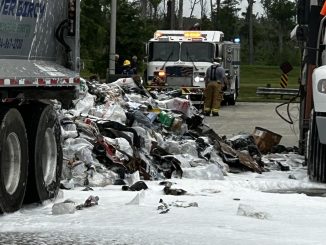
A year from now, the 2007 election campaigns will be off and running. Due to term limits, half of the Legislature will likely be replaced, and most of the major statewide elected positions stand a good chance to be strongly contested. Those elections may well be the most important in the modern history of a state that was slammed hard last year by the twin disasters of Katrina and Rita.The hurricanes scarred a significant amount of the geography and diminished important segments of Louisiana’s economy. Many of our citizens were uprooted and have not returned. But for all their damage, the storms also opened the door for major reforms that should have been enacted long ago.
One could argue that some progress has been made on the reform front. After a humongous battle, a watered-down version of levee board reform was enacted in a special session earlier this year. In order to pass the legislation, however, some powerful special interests had to be appeased. Likewise, the recently completed regular session of the legislature resulted in the enactment of legislation to merge the multiple Orleans Parish assessors’ offices into one, along with the separate civil and criminal sheriff’s operations. It would be hard to consider the New Orleans mergers a step forward. Those actions will only bring the local government structure in Orleans more in line with how every other parish operates. Only in Louisiana would moving up to status quo be considered a “reform.”
The major reform opportunities generated by Katrina and Rita have either been rejected or ignored. In spite of a huge loss of student enrollment in some areas, almost every postsecondary education institution has been reopened in some form or fashion. Before the storms, the multiplicity of those institutions was a drain on precious resources. In light of a significantly reduced population base, continuing to operate all of them is sheer folly.
The same holds true in the area of healthcare. Before the hurricanes, Louisiana had an outmoded system for delivering healthcare services to the indigent. Our Charity Hospital system is strongly defended by some elected officials who view it as an employment opportunity for constituents rather than a vehicle for the delivery of cost-effective, quality healthcare. Nothing happened in either of the special sessions or the regular session to bring Louisiana’s public healthcare delivery system more in line with the systems used in other states.
Legislators and elected officials have one more chance to enact meaningful reforms before the next elections. If the past is any indicator of the future, don’t look for much to happen. Ethics and budget reforms, huge state retirement fund problems, revamping postsecondary education, and bringing Louisiana into the 21st Century when it comes to public healthcare should be major issues in the legislature next year. That isn’t likely to happen. If it doesn’t, the real question is, will candidates and challengers in the 2007 elections emphasize these issues in their campaigns?
Make no mistake about it: There is definitely a role to fill for reform candidates in the 2007 elections. Many incumbents will have a spotty reform record—at best—to run on. The doors for reform opened by Katrina and Rita are rapidly closing. If the elections of 2007 do not give us men and women who will change things that need to be changed in state government, reform will continue to be simply an illusion for a long time to come.




Be the first to comment